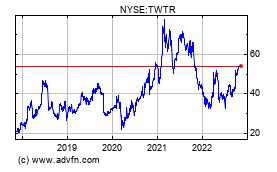Just dawned on me, Musk and Zuckerberg efforts to seemingly destruct Facebook and Twitter may be a blessing to mankind, no ? Still, Instagram remains, that other plague...
It's more a symptom that there aren't enough young people to keep these social media enterprises going. Once you attract a sizeable population of old folks looking for their old friends, you've peaked in the current world economy.
Just dawned on me, Musk and Zuckerberg efforts to seemingly destruct Facebook and Twitter may be a blessing to mankind, no ? Still, Instagram remains, that other plague...
Don't forget TikTok and Tumbler. And there are of course the numerous dating/hookup sites that have done *magnificent* work in destroying even the *idea* of a normal family.
If Musk ends up blowing $44B and takes out Twitter in the process... sure, he's out $44B, and that's not chump change. But the net positive to society might well make his investment pay off not just for society, but for *him.* Imagine if 2020 had not been filled with social medai-driven morons burning business and cities and getting police defunded and generally trashing the economy, ruining lives, raising the crime rate. Imagien what more is on the horizon for these worldwrecking systems. If Musk kept his money he *might* have invested it in SpaceX... just in time for the baying mobs of social medidiots to storm the launch sites and get Congress to ban "internal combustion rocket engines."
The net positive would be that it further insulates groups from each other by shifting to more isolating, smaller platforms like Mastodon, which is Twitter, but you can curate the people you communicate with. I suppose that's a positive, at least for the burgeoning societies which will emerge, when the present ones decide to implode themselves like the USSR did.
The problem with centralized media, like Twitter, Facebook, and Tiktok, is that it tends to normalize the median and trivialize the extremes. The problem with decentralized media, like Mastodon, and various echo chamber "alt-Twitters", is the opposite. That is, if you consider either of those to be problems, of course.
If you consider the status quo to be beneficial, the latter is clearly detrimental, and I don't think most people here would consider the present status quo to be particularly bad, at least if shown the alternative is "things as now" and "things get worse". If you don't things now are better, but things get worse might mean things get better later, then the latter is beneficial. There's no real option where "things get better" from "things as now" though, because the XXI century seems predestined by demography to be getting worse for the most developed economies, due to prolonged sub-replacement TFRs and aging populations.
It's not something that can be solved by more money or whatever either. It's something that was unconsciously chosen. The alternative economic system of the USSR was the only one that managed to avoid it by damping consumer choice and working within a system of scarcity, keeping people focused on families rather than consumerism, and, ironically enough, it was schools and language laws that caused the USSR to vote itself out of existence of all things.

















